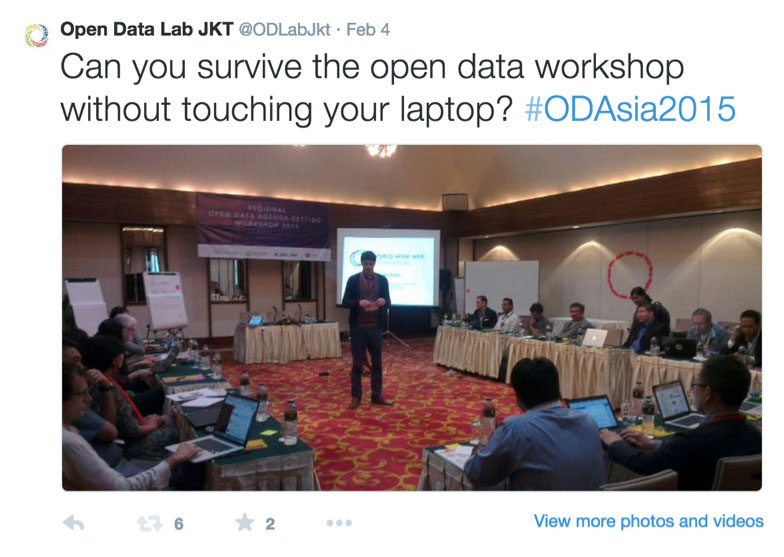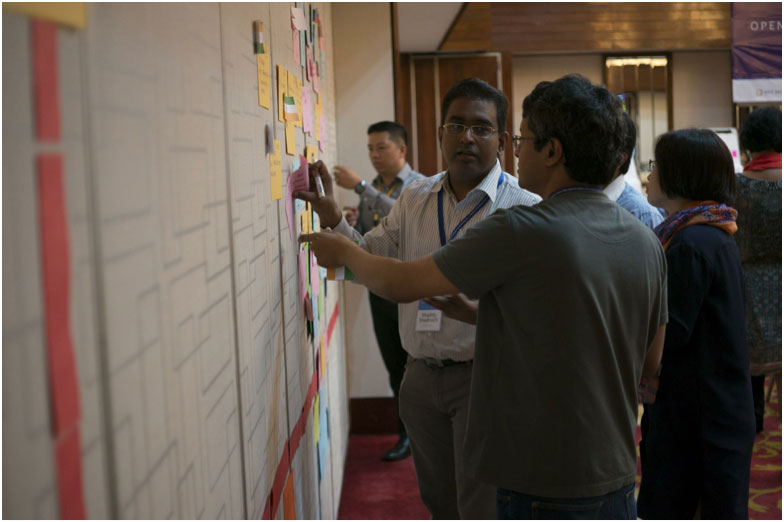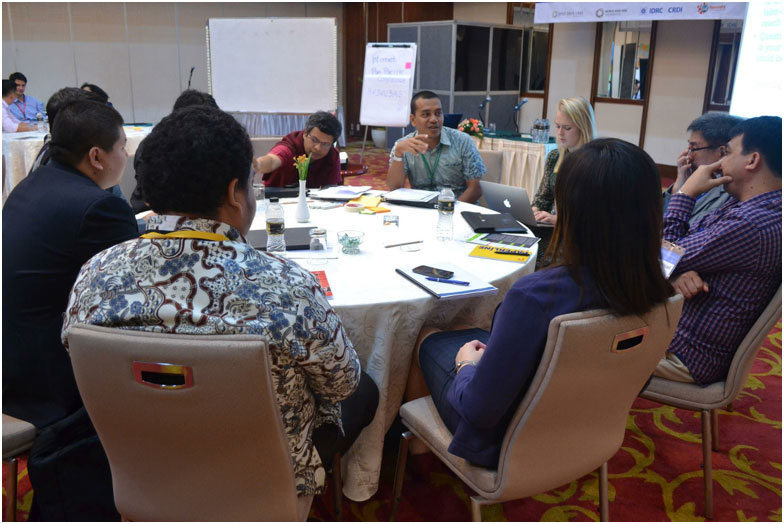The Regional Open Data Agenda-Setting Workshop, hosted by the Web Foundation’s Open Data Lab Jakarta, took place last 4–6 February 2015 in Jakarta, Indonesia. The workshop is part of the Harnessing Open Data to Achieve Development Results in Africa and Asia project, conducted in partnership with the Open Data for Development Network, and financially supported by the International Development Research Centre.
It was an event bursting with expertise – 492 years of work experience, collectively – with 34 participants from 11 countries across Asia-Pacific and from four other countries outside the region representing government, civil society, media and academia. It brought together experts, activists and advocates of open data for fruitful discussions on the current state of open data and inspiring its progress in the Asia-Pacific region.

Day 1: Ideal State of Open Data in the Region and Discussing the Open Data Barometer
There were a total of five sessions spanning the three days. The event was kicked off by an introduction to open data, the Web Foundation and the Open Data Labs, and explaining the purpose, idea and objectives framing the workshop.
Following this was the historical scan, wherein participants mapped the key events in the development of open data in the region, dating back two decades. The resulting timeline and the presentations gave a clear portrait of the drastic rise of open data over the last five years, but only in certain sectors and countries.

Afterwards, a discourse on the Open Data Barometer took place. Attendees discussed results, rankings and open data stories—such as addressing supply, demand and accessibility, and understanding data trends. Representing the region’s best performing country, Data and Information Programme Manager for the New Zealand Government, Keitha Booth, gave valuable insight on how to ensure open data’s potential is harnessed:
“We’ve got a supply side and demand side in our work. And in the supply side we want to make sure that the data is regular and in open format, so that the users can be confident that they’ll get it on a long-term basis. And on the demand side, we’re working to…find people to work with who want the data; we have a process for people to request it online. We’re developing better relationships with groups representing different groups, like CSOs and researchers, statisticians, business communities, so all our work is based on high-value—the demand that people want to use.”
At the other end of the spectrum, Myanmar – the lowest ranked country in the study – was co-represented by Information Matrix’s Thaung Su Nyein. Although not completely conceding to the results, he agrees that there are progress and improvements that could be had when treating open government data in Myanmar. He explains:
“Myanmar is ranked number 86 out of 86 countries, so it’s never an agreeable position when your country is in the last, but I think there is some substance to that. (Like) the Myanmar government has been very slow on reforming and releasing data, even to journalists…I think it just shows that we need to transform, we need to radically change the way agencies treat data.”
The variety of reactions to the study gave the Lab and representatives of the Web Foundation a melange of inputs to consider for future Open Data Barometer research. This includes points of reflection on the methodologies and indicators used. As an example, Nyein elaborates, there are times wherein planned and undertaken actions for improving open data impacts are not as successful or pronounced as intended:
“That…it’s really hard listening to all the other civic tech communities present here…you could tell that things don’t always work as advertised, even though we all mean very well and we try to do our very best, sometimes the impact isn’t as we try to engineer it to be, and impact sometimes works on a magical way of its own. Sometimes you plan this and this…(and instead) ‘that’ happens, but you just have to keep trying and hoping that one will stick.”
Concluding this, the day ended with the victory circle. The voices in the room worked together to define the ideal states of open data in Asia:
- For governments to show strong leadership and commitment to open data at all levels;
- For countries in the region to develop and implement open data standards formulated through participatory and inclusive processes;
- For sectors and open data campaigns to sustainably collaborate on initiatives;
- For citizens to have increased capacities in using and thereby benefiting from open data.

Read more about the succeeding days of the Regional Workshop and its outcomes here. These include determining priority sectors, partners, strategies, commitments and much more for achieving the vision for open data in the region in the years to come. You can also read about our launch event here, which took place parallel to the workshop.
Hi Tim!
You could see some more of the results in part 2 of our post, and in the incoming days, we’ll be posting more images from the regional workshop in our Flickr page (including the charts, historical scan results, etc.) and also sharing our summary report in the website. Stay tuned for those!
Thanks for the great report back from the workshop. I’d be really interesting to see the features that came up on the timeline: are there images from the flip-charts for that or a write up available?
Looking forward to reading further write-ups from the workshop.